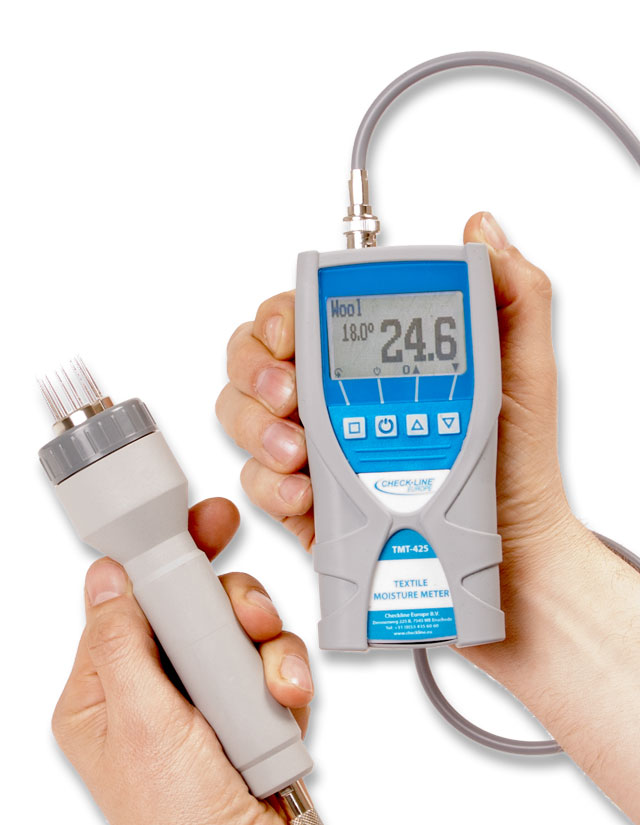The Ultimate Guide to Moisture Meters: A Comprehensive Overview and How They Can Conserve You Cash
In the realm of building maintenance, construction, and various sectors, the relevance of precisely determining wetness levels can not be overemphasized. Wetness meters work as important tools in discovering and keeping track of moisture content in products, helping in preventing pricey problems and making sure the high quality of products. Comprehending the nuances of various kinds of wetness meters, their applications, and the potential cost-saving advantages they provide can be a game-changer for businesses and experts alike. Uncovering exactly how these devices can not just streamline procedures however also add to financial cost savings is a journey worth starting.
Kinds Of Moisture Meters
One typical kind is the pin-type dampness meter, which measures the electrical resistance between 2 pins put into a material. Pinless wetness meters, on the various other hand, usage electro-magnetic sensor plates to check a bigger area without creating damages to the product's surface area.
Infrared moisture meters measure the thermal residential or commercial properties of a material to determine its dampness material non-invasively, making them helpful for applications where pin or pinless meters might not be ideal. Recognizing the different types of moisture meters offered can aid industries choose the most proper tool for their specific wetness dimension needs.

Advantages of Using Moisture Meters

Additionally, making use of moisture meters can result in boosted power performance. By identifying areas with high dampness degrees, such as leakages or poor insulation, adjustments can be made to enhance energy conservation and minimize energy prices. In farming setups, dampness meters play an essential duty in optimizing crop yields by allowing farmers to keep an eye on dirt wetness levels and make educated watering choices. Generally, the advantages of making use of wetness meters extend throughout numerous markets, supplying cost-efficient remedies and advertising far better top quality control techniques.
Exactly How to Choose the Right Moisture Meter
Selecting the ideal dampness meter includes considering key variables such as product compatibility, measurement array, and calibration precision. When choosing a dampness meter, it's important to make sure that the meter appropriates for the specific product you will be screening. Different materials have differing electrical residential or commercial properties that can influence wetness analyses, so choosing a meter designed for your product is important for exact results. In addition, think about the dimension variety of the moisture meter. Make sure that the meter can spot dampness levels within the array required for your applications. Calibration precision is another important factor to bear in mind (Moisture Meter). Go with a wetness meter with dependable calibration to make sure precise and constant analyses. Some meters may need routine calibration adjustments, so comprehending the calibration procedure is very important. By very carefully evaluating these elements, you can pick a moisture meter that satisfies your requirements and provides accurate wetness dimensions for your tasks.
Proper Methods for Moisture Meter Use
To ensure exact wetness readings and maximize the effectiveness of a moisture meter, employing proper strategies is vital. When using a pin-type dampness meter, place the pins or probes into the material being examined up until they make full contact. By following these appropriate strategies, individuals can count on their wetness meter to provide reliable dampness degrees, helping in protecting against expensive damages or guaranteeing top quality in different applications.

Cost Financial Savings Via Moisture Meter Applications
Exactly how can the critical usage of dampness meters lead to substantial cost financial savings across various markets? In the farming market, moisture meters aid in identifying the ideal time for collecting plants, protecting against excess or over-drying moisture that can impact the final product's quality.

Moreover, in the food handling market, wetness meters are necessary for checking item top quality and making certain conformity with safety and security guidelines. By precisely determining wetness web content in food items, makers can stop perishing, keep quality, and reduce waste, leading to considerable cost savings. On the whole, the critical application of dampness meters is a useful investment that can lead read this article to significant Read Full Article price reductions and improved performance throughout various industries.
Verdict
In verdict, wetness meters are important devices for identifying and gauging dampness levels in various products. By utilizing the right dampness meter and following correct methods, users can properly avoid pricey damages caused by excess wetness. Investing in a top quality moisture meter can bring about considerable price savings in the lengthy run by determining possible problems beforehand and allowing prompt remediation. Inevitably, moisture meters are crucial instruments for keeping the integrity and durability of products and structures.
Moisture meters serve as vital devices in spotting and checking moisture content in materials, helping in protecting against costly damages and guaranteeing the high quality of items. Infrared moisture meters measure the thermal buildings of a material to determine its wetness material non-invasively, making them valuable for applications where pin or pinless meters might not be ideal.Moisture meters offer indispensable benefits in properly keeping an eye on and examining dampness degrees in varied products and atmospheres. In agricultural settings, moisture meters play an essential role in enhancing plant yields additional info by enabling farmers to keep track of soil dampness degrees and make notified irrigation decisions.In conclusion, dampness meters are valuable tools for determining and spotting moisture degrees in different materials.
Comments on “The Ultimate Guide to Choosing the Right Moisture Meter for Your Needs”